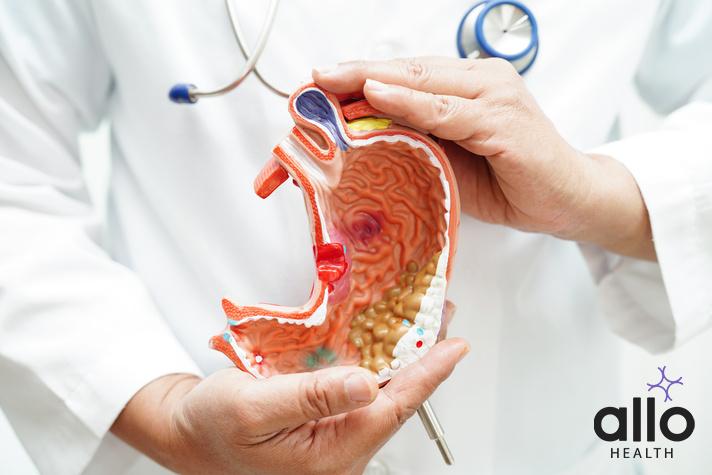Managing Pelvic Inflammatory Disease (PID): Coping and Psychological Support

"The following blog article provides general information and insights on various topics. However, it is important to note that the information presented is not intended as professional advice in any specific field or area. The content of this blog is for general educational and informational purposes only.
Book consultation
The content should not be interpreted as endorsement, recommendation, or guarantee of any product, service, or information mentioned. Readers are solely responsible for the decisions and actions they take based on the information provided in this blog. It is essential to exercise individual judgment, critical thinking, and personal responsibility when applying or implementing any information or suggestions discussed in the blog."
Managing Pelvic Inflammatory Disease (PID): Coping and Psychological Support
Pelvic Inflammatory Disease (PID) is an infection of the female reproductive organs. It is a serious condition that can lead to severe complications, including chronic pelvic pain, ectopic pregnancy, and infertility. Managing PID involves not only medical treatment but also coping with the emotional and psychological challenges that come with the diagnosis. This article explores effective strategies for managing PID and emphasizes the importance of psychological support in the journey toward recovery.
Understanding Pelvic Inflammatory Disease
PID typically results from sexually transmitted infections (STIs) such as chlamydia and gonorrhea. Bacteria from these infections can travel from the vagina to the uterus, fallopian tubes, or ovaries, causing inflammation and infection. Symptoms of PID can vary from mild to severe and may include pelvic pain, abnormal vaginal discharge, fever, painful urination, and irregular menstrual bleeding.
Medical Management of PID
The primary treatment for PID involves antibiotics to eliminate the infection. Early diagnosis and treatment are crucial to prevent long-term complications. Commonly prescribed antibiotics include doxycycline, metronidazole, and ceftriaxone. In severe cases, hospitalization may be required for intravenous antibiotics and more intensive care.
Coping with the Diagnosis

Receiving a PID diagnosis can be overwhelming. It’s essential to address both the physical and emotional aspects of the condition. Here are some strategies to help cope with the diagnosis:
-
Educate Yourself
Understanding PID is the first step toward managing it effectively. Learn about the causes, symptoms, treatment options, and potential complications. Reliable sources of information include healthcare providers, reputable medical websites, and support groups. Being informed can help alleviate fears and uncertainties about the condition.
-
Follow Medical Advice
Adhering to the prescribed treatment plan is vital. Take all medications as directed, even if symptoms improve before the course is completed. Follow-up appointments with your healthcare provider are crucial to monitor progress and ensure the infection is fully treated.
-
Communicate with Your Partner
PID can be linked to sexually transmitted infections, so open communication with your partner is essential. Both partners may need to be tested and treated to prevent reinfection. Discussing sexual health openly can help strengthen your relationship and support each other through the treatment process.
-
Maintain a Healthy Lifestyle
A healthy lifestyle can support your body’s healing process. Eat a balanced diet, stay hydrated, and get plenty of rest. Avoid smoking and limit alcohol consumption, as these can weaken your immune system and hinder recovery.
Psychological Support for PID

The emotional impact of PID can be significant, and psychological support is a critical component of comprehensive care. Here are ways to address the psychological challenges associated with PID:
-
Seek Professional Counseling
Talking to a mental health professional can provide a safe space to express your feelings and concerns. A therapist can help you develop coping strategies, manage anxiety and depression, and work through any relationship issues that may arise due to the diagnosis.
-
Join Support Groups
Connecting with others who are experiencing similar challenges can be comforting. Support groups, whether in-person or online, offer a sense of community and shared understanding. Members can share their experiences, offer advice, and provide emotional support.
-
Practice Stress Management Techniques
Chronic stress can negatively impact your physical and mental health. Incorporate stress management techniques into your daily routine, such as mindfulness meditation, deep breathing exercises, yoga, and progressive muscle relaxation. These practices can help reduce anxiety and improve overall well-being.
-
Focus on Self-Care
Prioritize self-care to nurture your mental and emotional health. Engage in activities that bring you joy and relaxation, such as reading, listening to music, spending time in nature, or pursuing a hobby. Self-care helps restore balance and fosters resilience.
Dealing with Relationship Dynamics
PID can affect intimate relationships, particularly if it is associated with an STI. Addressing these dynamics openly and honestly is crucial for maintaining a healthy relationship.
-
Open Communication
Effective communication is the foundation of any strong relationship. Discuss your diagnosis with your partner, including the implications and necessary precautions. Honesty and transparency can prevent misunderstandings and build trust.
-
Sexual Health Education
Educate yourselves about sexual health to reduce the risk of future infections. Practice safe sex by using condoms and getting regular STI screenings. Understanding sexual health can empower both partners to make informed decisions and protect each other’s well-being.
-
Rebuild Intimacy
PID and its treatment can temporarily affect sexual activity and intimacy. Focus on rebuilding intimacy through non-sexual affection, such as hugging, holding hands, and spending quality time together. When you feel ready, communicate your needs and boundaries to your partner to ensure a mutually satisfying and respectful experience.
Long-Term Management and Prevention

Preventing recurrent PID and managing long-term health is essential for those who have experienced the condition.
- Regular Medical Check-Ups
Regular gynecological exams and STI screenings are vital for early detection and prevention of PID. Follow your healthcare provider’s recommendations for routine check-ups and testing.
-
Practice Safe Sex
Consistently using condoms and maintaining a monogamous relationship can significantly reduce the risk of STIs and PID. If you or your partner have multiple sexual partners, regular STI testing is crucial.
-
Monitor Symptoms
Be vigilant about any symptoms that may indicate a recurrence of PID. Prompt medical attention can prevent complications and ensure timely treatment.
Managing Pelvic Inflammatory Disease involves more than just medical treatment; it requires a holistic approach that addresses both physical and psychological aspects. Coping with the diagnosis, adhering to treatment plans, and seeking psychological support are critical steps in the journey toward recovery. By fostering open communication, practicing self-care, and maintaining a healthy lifestyle, individuals with PID can lead fulfilling lives and maintain their overall well-being.









































